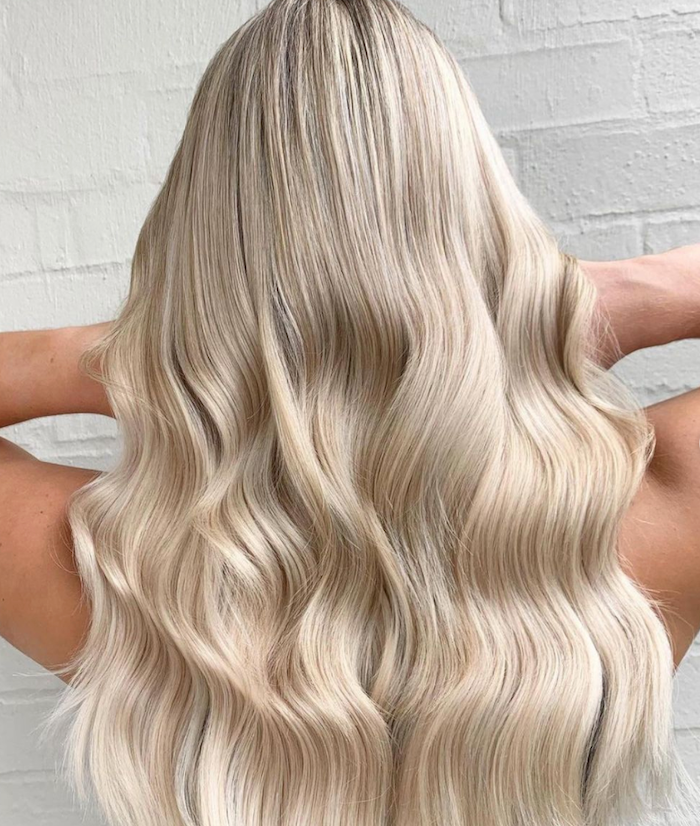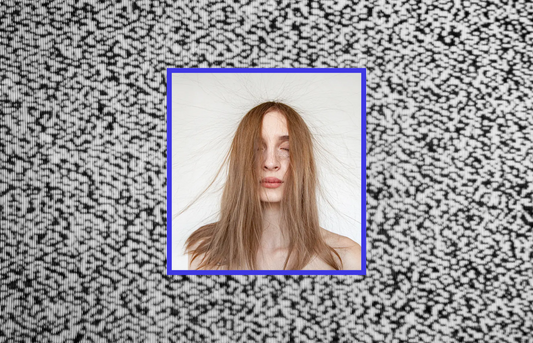Scalp Sebum: What You Need to Know About Sebum on Your Scalp
Scalp sebum isn't all bad! Here is the low down on precisely what it is and why it essential for healthy hair growth.
In this article
You've probably seen the words scalp sebum tossed around on the beauty blog-asphere, right?
But...do you actually know what scalp sebum is?
"Yeah, it's what makes my hair greasy, right?"
Well, yes and no. On one hand, yes, sebum does make your strands oily. However, did you know it is actually essential for healthy hair?
In this article we'll cover everything you need to know about sebum on the scalp. And by the end of this you'll think very differently about scalp sebum.
Ready?
What is sebum on the scalp?
Sebum is the oil produced by the sebaceous or oil glands on your scalp.
This naturally occurring oil helps hydrate your hair just like other naturally occurring oils do for your skin.
This is why scalp sebum is essential for healthy hair growth.
And...
This is why it needs to be protected.
Read: What Causes Hair Breakage and How To Fix It

How does scalp sebum help hair growth?
Playing a vital part in the hair growth cycle, sebum is the oil your scalp naturally produces.
Why does it produce oil?
Your body is really smart, believe it or not :)
And it produces a number of protective bi-products, on the inside and outside of your body.
One of those bi-products is scalp sebum.
Here's the thing:
Sebum oil is essential for hair growth.
Why?
Because it hydrates your strands and protects them from becoming brittle.
And:
Insulates your hair from environment pollutants.
It also helps to maintain the pH balance of your hair and skin.
Which keeps your strands smooth, shiny and strong.
So...
Why does Sebum get such a bad wrap?
Good question.
Sebum becomes a problem when we have too little of it.
Or too much of it.
Without it our hair gets dehydrated and can't grow long and luscious.
And with too much of it... well, it's just greasy.
Read: How Hair Grows And How To Make It Grow Faster

Is scalp sebum bad?
Excess scalp sebum is bad for your hair.
But
Scalp sebum, in general, is great for your hair.
It's when scalp sebum builds up that it causes issues.
Because:
Sebum scalp buildup causes oily and greasy hair.
But worse yet;
The build up can also dry up and cause blockages in your hair follicles.
This can stop hair from growing.
Which can lead to hair thinning.
So...
On one hand, it's essential to have adequate amounts of scalp sebum.
But on the other hand;
It's essential to manage sebum production to prevent greasy hair and blocked hair follicles.
It's about finding the right...balance.
What causes a sebum scalp build up?
There are a number of factors that play a role in scalp sebum buildup.
These include:
- Hormones
- Genetics
- Washing your hair
- Diet
- Health issues
- Hair hygiene
- And more...
These factors can cause our sebaceous glands (sebum glands) to overproduce sebum.
Which can clog the hair follicles.
In turn:
Blocked hair follicles interrupt the natural hair growth cycle, which causes hair loss and prevents hair growth.
Excessive sebum also causes our hair to look greasy, dull and heavy.
So, what to do?
Also read: The Causes Of Oily Hair And How To Fix It

How to manage sebum production?
Fortunately...
There are several ways to prevent excess sebum from building up on your scalp.
Firstly you have to understand one things:
Are you an overproducer of sebum?
Or an under producer?
Overproducers produce too much sebum.
In other words:
You have greasy hair.
And an underproducer produces too little sebum.
In other words:
You have dry hair.
The reason this is important is because the management style for each of this conditions is quite different.
If you're an underproducer, then you don't need to try to reduce sebum production.
Whereas;
If you're an overproducer, it would make sense to manage down your sebum.
So...
How to manage sebum production for someone who overproduces sebum:
There are plenty of ways to manage your sebum production.
Some of these are:
- Steer clear of oil-based products
- Scrub your scalp
- If you have thick locks, regularly get them thinned out
- Leave your locks mid-length
- Brush your hair regularly
- Wash your hair with lukewarm water
- Wash your hair less often
- Or better yet, give yourself a 2 week hair wash detox
- Avoid adding toxins and harsh products to your hair for a while
- Eat healthy (more below)
- Use a gentle shampoo
There are plenty of ways to manage down sebum.
But the fundamental understanding that you need to have is:
You are producing sebum for a reason.
So the point is not to try to attack the sebum.
The point is to understand why it's there.
For some reason you (your body...you are your body) is overproducing sebum.
And the purpose of sebum is to protect the scalp and hair from dryness.
So...
Is there any chance that you're using products/shampoo/etc. that is too harsh or drying?
Or:
Is there anything that you're eating that is eliminated through your sweat glands on your scalp?
Remember...
If you consume toxins, then your body will try to eliminate them from all areas of your body.
Including your scalp.
And if your scalp senses toxins on the skin...
It'll go into full protective mode.
And that means:
Sebum production to the max.
Foods that contain a lot of toxins include:
- Gluten
- Colorings
- Flavorings
- Heavy metals
- Sugar
- Processed food
- Food products (as opposed to real food)
- Other dirty foods
It's worthwhile trying to eliminate some of these items from your diet.
To see if there's any physical response, over 2-3 weeks.
Popular: 5 Harmful or Toxic Ingredients In Shampoo
How to manage sebum production for someone who underproduces sebum:
Although there are many reasons why your follicles are under producing scalp sebum...
...the aim is to increase sebum production.
Or
At the very least;
Increase the oil consistency of your hair and scalp to healthy and natural levels.
And as always, there are some useful tricks.
They are:
- Shower your scalp with warm water (not scolding hot) to activate the sebaceous glands.
- Give yourself a regular scalp massage with Vitamin E oil. Vitamin E oil is a wonder for a plethora of dry-skin disorders.
- Take a shower detox for 2-4 weeks (if you can!). This can act as a reset to get your scalp bacteria microbiome back to normal again.
- Drink more water. Rehydrating can improve your sebum production.
- Try a high carbohydrate diet, focusing on foods like lentils, beans and nuts, as well as cauliflower, broccoli, and other cruciferous vegetables.
- Try going vegan for a while. I'm not vegan. But this can really balance out your hormones, which can affect sebum production.
- Avoid sugar and gluten.
- Try switching out your shampoo & conditioner for a natural one for a while.
When trying to manage sebum production, it's essential not to go too far.
As I've mentioned:
You need this oil to help hair growth.
In fact
Over-washing is one of the main culprits for stripping your strands of their natural oil.
Which can harm your hair by drying it out.
Or
Over stimulating the sebum production.
This is why you need scalp sebum.
Also read: The Halo VS Other Types Of Hair Extensions

Sebum vs dandruff:
Are scalp sebum and dandruff the same thing?
No.
But can scalp sebum cause dandruff?
Absolutely.
While the exact cause of dandruff is not known, there are many contributing factors.
Here's the deal:
Sebum causes dandruff in a few ways.
One
Excess scalp sebum creates the perfect breeding ground for yeast and other fungi.
This build-up, in turn, causes dandruff.
But
Just like too much sebum, too little sebum can also cause dandruff.
This is because:
Your scalp becomes dehydrated and dries out.
Leading to dead and flaky skin.
AKA dandruff.
Got questions? Post them below!
You Might Also Like:

Just high quality, beautifully designed halo hair extensions for natural, down to earth bombshells.
Shop now




